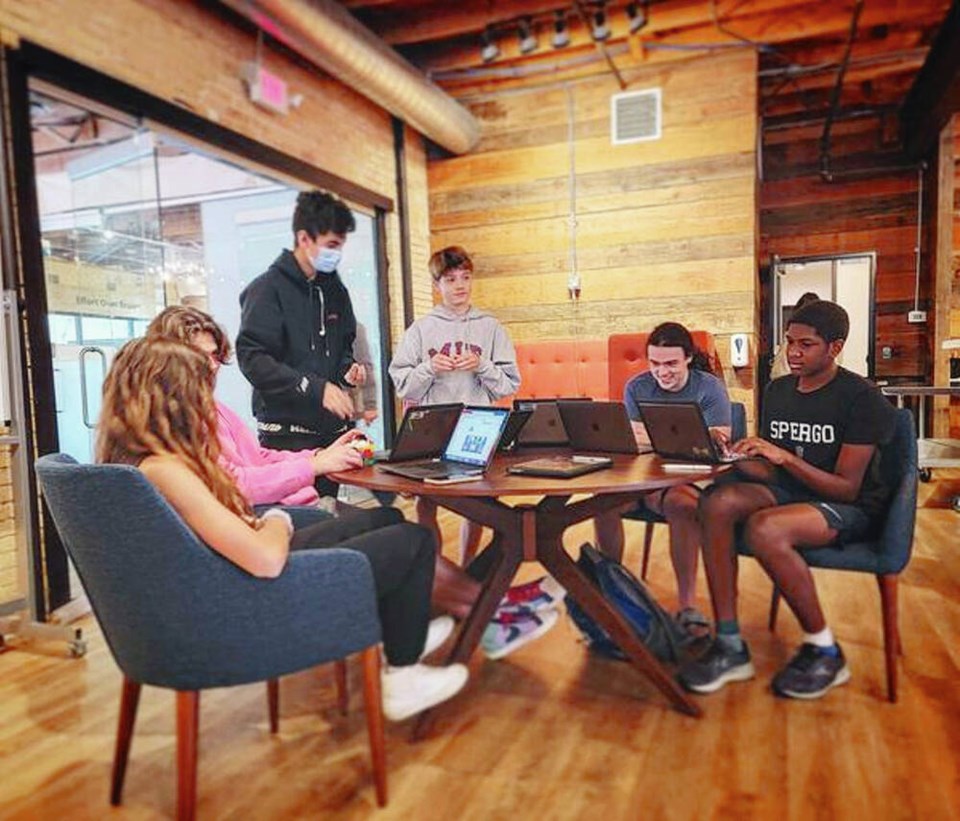When respected education writer and philosopher Phillip Schlecty described modern secondary schools as being “places where the somewhat younger go to watch the somewhat older work,” it set people thinking about the necessity of rebalancing the teaching/learning relationship.
That shift, to employ another cliché, would involve the teacher being less of a “sage on the stage” and more of a “guide on the side.”
The problem with the implementation of that idea was, and still is, the assumption that every student’s desk contained sufficient resources to allow the student to research a topic, organize a response to the topic and write what amounted to a short essay clarifying that response.
That has — up until now at least — just not been possible. The teacher, the “sage on the stage,” has traditionally been both the central source of new knowledge and the adviser as to what to do with that knowledge.
Now a secondary school in Austin, Texas, has gone all in to flip that around. Alpha High School, a private school, is designed for self-directed learners who, according to its promotional materials, “are each in charge of their own learning journey, and each with limitless potential to achieve bold and ambitious goals.”
The school was founded in 2014 and so far, it has 250 students across all three campuses, with two located in Austin and the other in Brownsville.
The online promotional brochure describes teaching/learning classrooms at Alpha as ones where “instead of working with traditional teachers, students work independently with adaptive AI apps to advance through their required courses,” adding that “while Alpha’s high school experience is anything but traditional, our students are bolstered with in-depth curriculum support, ensuring that core requirements are fulfilled, while deeper interests are explored.”
The grade 9-12 school provides traditional content in English, math, sciences, world languages and social sciences like history and geography.
What is different is the delivery system.
According to a report by Austin-based KVUE, an ABC affiliate, while Alpha doesn’t have teachers, it uses what it calls “guides.”
Alpha school co-founder MacKenzie Price told KVUE that the school has a “lot of adults who are in the room engaging with these kids, working as coaches. So they’re helping the kids get clear on what are some goals that they’re working on.”
Price said students work one-on-one with artificial intelligence for the first two hours of the day in what she called app-based AI tutoring, “so it’s the curricular information that regular schools are also teaching, but with AI apps which are feeding information to students at the appropriate level and pace that they need.”
Apparently the system goes as far as to have AI-created historical figures explain their own histories, with basic comprehension quizzes.
Core skills, the first block of the day, starts at 9 a.m. and continues for two hours. The other hours are set aside for learning life skills like public speaking, giving and receiving feedback, focus and intensity. There are workshops where students tackle projects individually or with a group of their peers.
And yes, there is a catch to all this — in fact, two of them — for parents wanting to enrol their children in Alpha.
The first is the admissions process. A brochure on the school asks: “Does your grade eight or nine student shine brightest when given autonomy and control over their education?” and notes that the application process involves submission of a short video, along with a shadow day to confirm that Alpha’s structured independence approach is right for the student.
In other words, the Alpha admissions process is designed to clearly identify students who can succeed in the Alpha model.
The second catch for some families may be the $40,000 US-a-year tuition fee.
Taking both into consideration, the school begins to sound a bit like a private finishing school for selected children of moderately wealthy parents, who get what they are paying for, according to MAP, the U.S. nationwide Measures of Academic Progress test.
According to Alpha’s promotional material, the school’s students “consistently outscore their peers at other schools in the U.S.”
The context for that, however, is that, according to the PEW Research Centre, recently released data from international math and science assessments indicate that U.S. students continue to rank around the middle of the pack, and behind many other advanced industrial nations.
Can any of this be translated into your everyday secondary school?
FOX7 Austin quotes Price herself as acknowledging that “this futuristic model is expensive, and may not be ready for prime time when it comes to public schools.”
Geoff Johnson is a former superintendent of schools.



